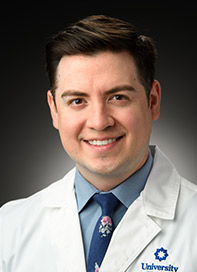One in eight women in the U.S. is diagnosed with breast cancer in her lifetime, according to the Centers for Disease Control and Prevention, and more than 40,500 women die from breast cancer each year.
It’s important to know the signs, symptoms and treatments associated with this disease because breast cancer has become one of the most common cancers affecting American women today.
What Is Breast Cancer?
Breast cancer is cancer that starts in the cells of the breast tissue, usually in the ducts and lobules. Cancer happens when cells mutate and grow, even when your body doesn’t need them. These cells form a tumor, or lump, that you may find in your breast.
How to Screen for Breast Cancer
Getting your yearly screening mammogram starting at age 50 is critical to catching breast cancer early. If you are at a higher risk for breast cancer, like if you have a mother or sister with breast cancer, you should speak to your doctor about starting your screening earlier than age 50.
Mammograms are the most reliable method to screen for breast cancer.
Breast self-exams are no longer recommended by health care providers as a dependable way to detect breast cancer. However, it is important to be aware of changes in your breasts.
If you are concerned about a change in the appearance or feel of your breasts, schedule an appointment with your health care provider.
Early Signs of Breast Cancer
Most people think a lump in the breast is the only sign of breast cancer. However, there are many other symptoms, including:
- Change in the skin texture or enlargement of pores on the breast
- Tenderness or thickening near the breast or under the arm
- Dimpling on the breast
- Breast, areola or nipple becomes scaly, red or swollen
You may also have breast cancer and not experience any symptoms.
If you experience any unusual changes in your breasts, it’s important to seek medical attention right away. Early detection is key in order to prevent the cancer from spreading.
Risk Factors for Breast Cancer
Some women are at a higher risk for breast cancer than others. You may be at a higher risk if you:
- Are overweight
- Have a first-degree relative (mother or sister) with breast cancer
- Have a genetic mutation known as BRCA1 or BRCA2
- Are 50 or older
How to Reduce Your Risk
- Exercise regularly
- Manage your weight, especially post-menopause
- See your primary care provider for checkups
- Reduce alcohol intake
- Get your yearly mammogram
Learn more about reducing your risk for breast cancer in this blog.
Breast Cancer Treatments
Treatments for breast cancer vary depending on the type of breast cancer, its stage and the overall health and personal preferences of the patient.
- Local treatments: These treatments address the tumor without affecting the rest of the body. However, depending on the cancer, you might need other types of treatments as well.
- Systemic treatments: Drugs that can reach cancer cells almost anywhere in the body. These drugs can be given orally or intravenously (directly into the bloodstream).
Before beginning any treatment, it’s important to discuss the benefits and risks of each option with your health care team.
Early Detection and Prevention of Breast Cancer
Early detection is key when it comes to treating and helping to prevent breast cancer from progressing. Make sure to get annual screenings, including a mammogram, because they can detect cancer before any signs appear.
If you are at a higher risk for breast cancer, it’s especially important to schedule your annual screenings and to talk with your health care provider about steps you can take to prevent or lower your risk of breast cancer.
Breast Care at University Health
University Health is nationally recognized as a Certified Quality Breast Center of Excellence and provides comprehensive, compassionate breast care based on individual health needs. For more information about our breast care, please call 210-358-2725.





